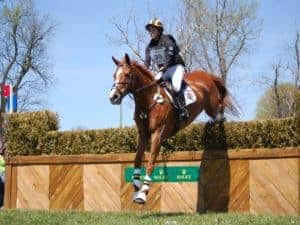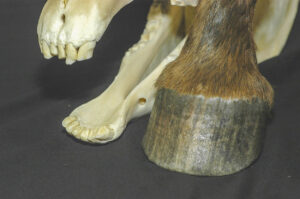Feeding Breeding Stallions

Most stallions should be fed according to their maintenance requirements or slightly above that amount, depending on how much they’re exercising, when not being bred or collected. However, as breeding season approaches, stallion owners might consider a few key points about their studs’ nutritional needs.
Energy
Stallions’ energy needs are dependent on breeding frequency. There is no physiological increase in calories directly related to sperm production, but the physical activity associated with breeding does burn calories. Stallions covering mares or being collected a few times each week will not need as many calories as a stallion breeding 10 to 15 times per week.
To increase a stallion’s caloric intake without drastically increasing the total amount of food consumed, consider adding fat to his diet. In addition, a fat source could help to keep the stallion less excitable in the breeding shed. In addition to providing calories, a fat source in the stallion’s diet might also benefit sperm quality and motility. Additionally, research has shown that an increase in omega-3 fatty acids in the diet could be beneficial to some breeding stallions.
Vitamins and Minerals
Further, there is some evidence that certain minerals and vitamins could help improve fertility:
- Research in horses has shown that selenium is important in sperm motility and structure;
- Selenium and vitamin E work together in an antioxidant capacity to protect cells from oxidative damage; and
- Vitamin C has been shown to increase sperm concentration other species.
Body Condition Score
Prior to the breeding season, ensure your stallion has an optimum body condition of around 5 on the 9-point Henneke Body Condition Scale. Since the physical act of breeding does mimic the caloric needs of a horse in light work, owners should be prepared to make changes to their stallions diet as needed throughout the breeding season.
Take-Home Message
Stallions’ nutritional needs typically change during the breeding season. The physical act of breeding necessitates more energy in their diets, and adequate omega-3 fatty acid, selenium, and vitamins C and E levels are needed to promote healthy sperm quality and quantity.

Related Articles
Stay on top of the most recent Horse Health news with

















